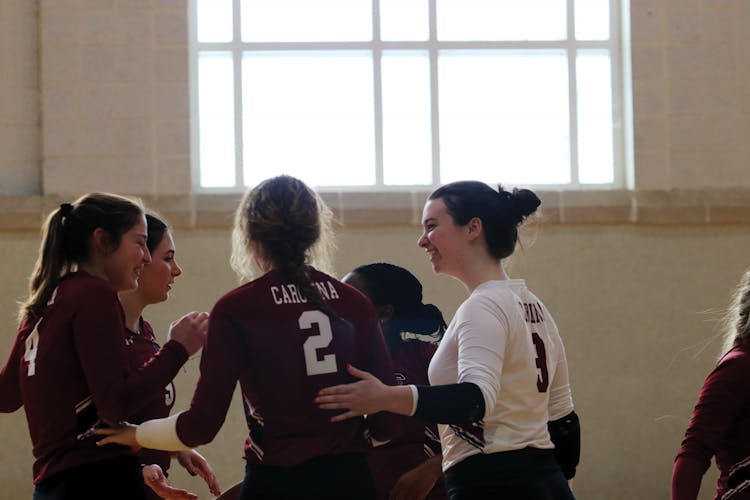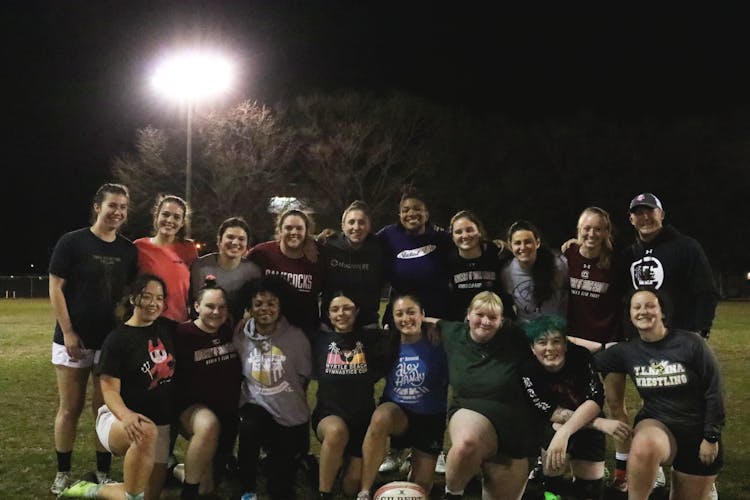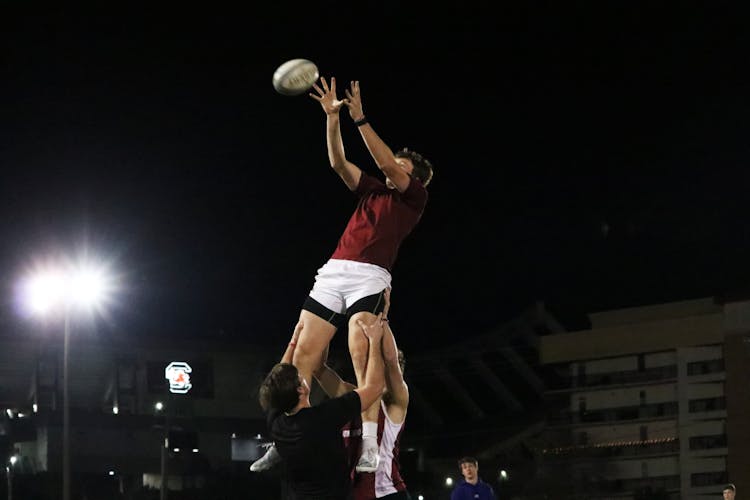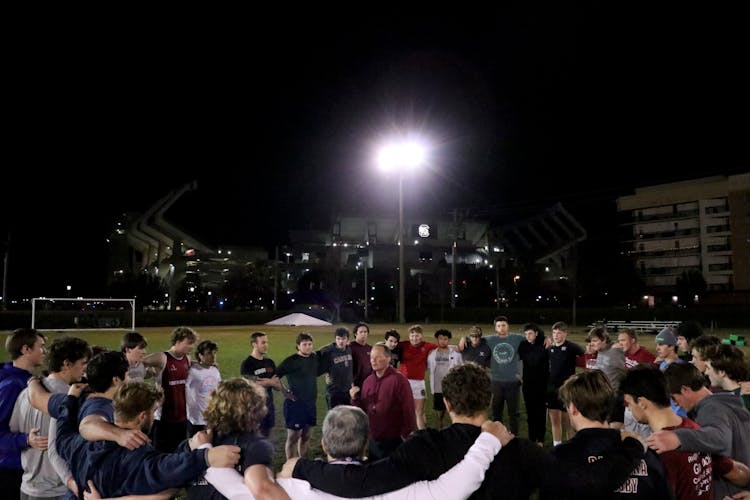While students at USC chose to join club sports teams for a variety of reasons, several club athletes agree that joining an athletic club has been beneficial for their mental health.
“It's nice to have two hours, three hours at a time blocked off in my day to just dedicate to playing a sport,” Josie Steed, a first-year women’s club rugby player, said. “I think that's really good for my mental health to be having a community of people where we all have a shared goal, and we can just rely on each other.”

Most sports clubs at South Carolina hold one or two practices a week, and, when in season, play games mostly on weekends. Some teams will also host extra non-scheduled workouts to stay in shape and maintain a bond.
“I'm the type of person where I need to work out every day, ... so rugby is that outlet for me,” third-year men’s club rugby team captain Grant Howard said. “Mentally it's been awesome for me, all my best friends play rugby.”
The comradery and commitment of club sports provide athletes with a support system full of people who have similar interests. For participants like club beach volleyball player Joel Gordon, it's an outlet to shed stress and create structure.
"Last year, I had some really low points where I would be just stuck in my room completely unmotivated to do anything," Gordon said. "To take something that I love and have it as a commitment, it just gets me going. It's something to look forward to at the end of the day, and it just kind of serves as a constant motivator for me."
Outside of their organized meetings, team members bond over extra events, including pasta nights and watching sports.
“We always like to create a bonding memory with each other,” second-year men's club volleyball player Ryan Everding said. “That's really allowed us to really have a sense of, not only teamwork, but a sense of family and community.”
Club athletics is not as competitive as the Division I teams that play for the university, but it is a step up from the competitiveness of intramural sports. Unlike Division I teams, which practice almost everyday, clubs give athletes plenty of free time to rest and recover.
For Gamecock men's lacrosse, specifically, a portion of the club team's roster played at the Division I level at other schools but decided to transfer and play at USC because of the lighter time commitment.
“A lot of guys want to keep playing sports but don't want to have that everyday grind,” second-year Gamecock lacrosse Vice President Jake McQuaid said. “I think pretty much all, if not most of our team, could have played at the NCAA level.”
This extra time allows students to play the sport for fun and not have it feel like a job. Second-year player Johnny Stanton played Division I lacrosse at the University of Massachusetts before moving to South Carolina last spring.
“Coming from playing D1, that was extremely strenuous. It was more than a full-time job,” Stanton said. “It was crazy, but I would say, although we don't train like (a D1 team), we compete like one. I mean, we just scrimmaged a D2 team and beat them.”
Still, club sports can be a large time commitment and potential source of stress for some athletes, especially if they choose to take a leadership role. Yet, many agree that, with planning and discipline, balancing all of the responsibilities is possible.
“As long as you have good time management, club sports are just one of the best things for you,” Everding said.
Many said that club sports have been a great experience, and Everding credits the club volleyball team for some of his favorite college memories.
“I know club sports is very good for people, and I know whether it's a fraternity, a sorority or just a club, go out and do something, Everding said. "Don’t just sit back and let college go by and miss all those memories and the potential to meet friends for life.”






